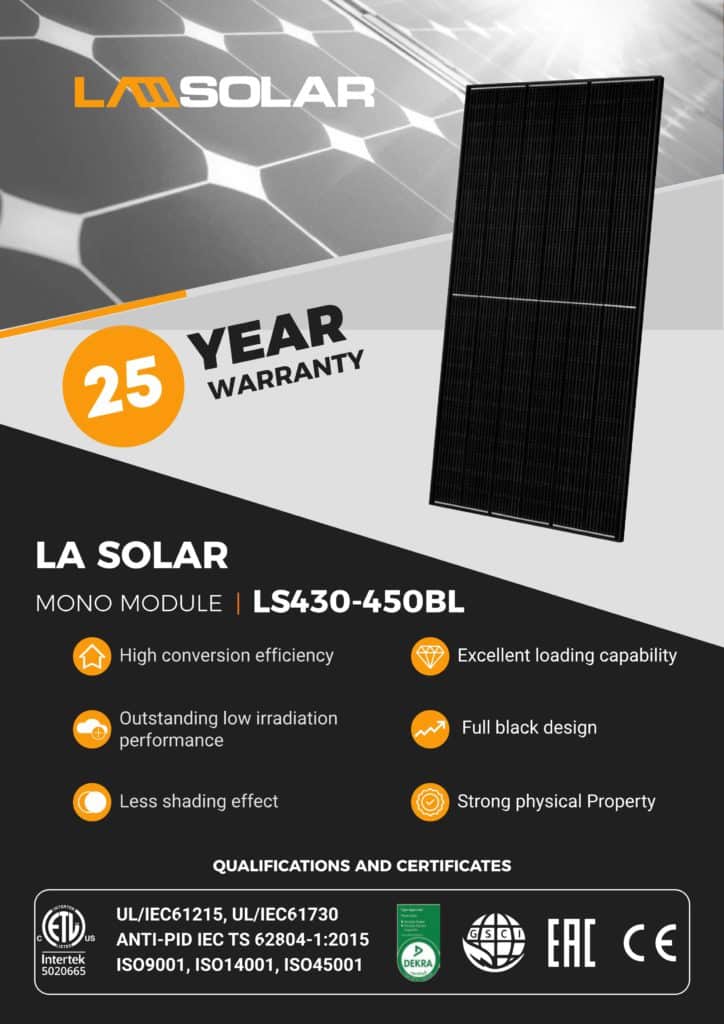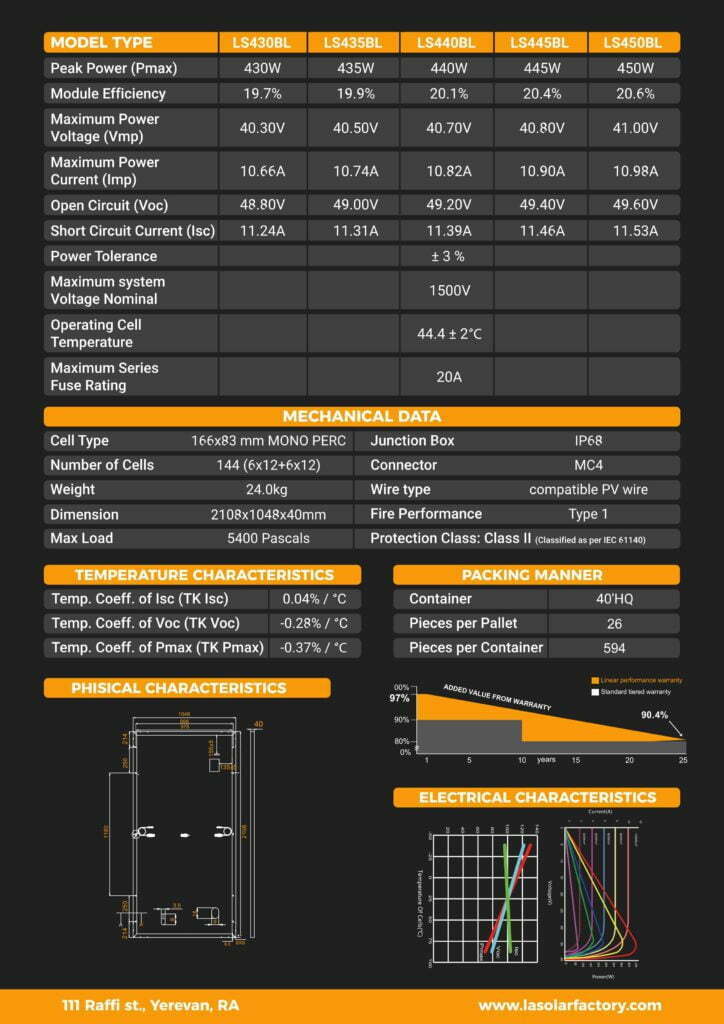Solar panels come in many varieties to meet the different cost, performance, size, efficiency, and aesthetic needs of customers. The type of solar panels you obtain will vary based on the solar panel manufacturer.
Solar panels utilize the following major technologies:
- Polycrystalline Silicon (cheaper, moderate efficiency, usually blue)
- Monocrystalline Silicon (considered “premium,” high efficiency, requires less roof space, typically black)
- Thin-Film (cheaper, low-moderate efficiency, could be flexible, has lower and better temperature degradation)
Solar cells made from these technologies are usually connected in sets of 60, 72, or 96 cells. Once connected, they form a solar panel or module. In turn, the panel or modules form arrays (e.g., groupings on different roofs). It is common to collectively refer to the arrays as the solar system.
Example: Panasonic N330 (VBHN330SA16) panel comprises 96 N-Type, monocrystalline cells.
POWER RATING (WATTS)
Solar panels are rated by their DC power output in watts (W) under standard test conditions (STC) and real-world test conditions (PTC). The closer the PTC value is to the STC, the better the real-world performance would be to the marketed performance. When looked at as a ratio (PTC/STC), the ideal would be 100%.
Example: Panasonic N330 (VBHN330SA16) panel’s STC rating is 330W, and the PTC rating is 311W, resulting in a PTC/STC ratio of 94% (which is very good for this technology).
SOLAR PANEL EFFICIENCY
A solar power system’s efficiency measures its ability to convert light into electricity. The higher the efficiency, the better. Residential efficiencies in the low 20% range are considered excellent. Higher efficiency cells indicate that fewer panels are necessary to attain the same panel wattage; thus, they require less roof space.
Alternatively, a panel utilizing high-efficiency cells would produce higher wattage in the same area.



